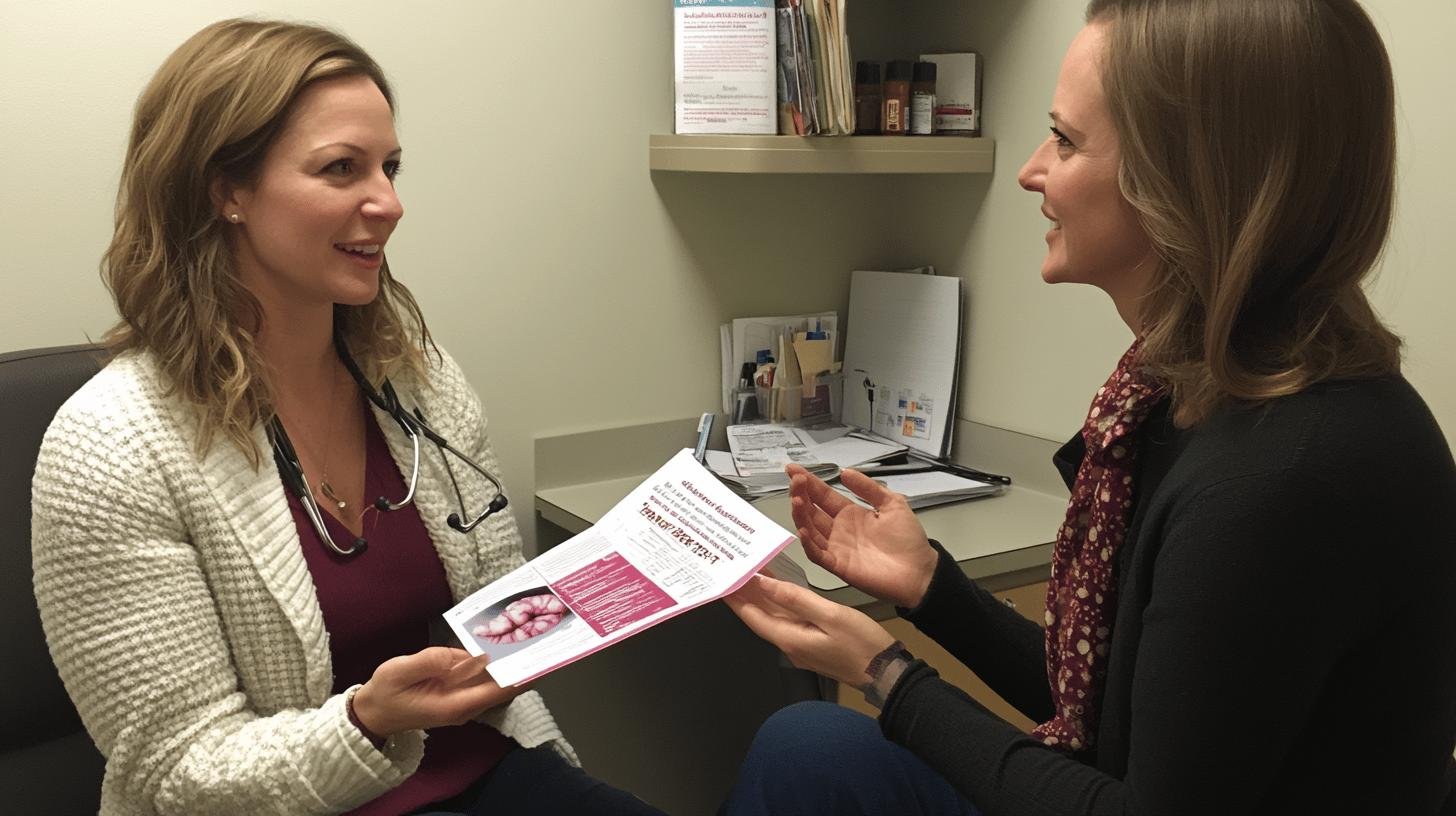TL;DR:
- Autoimmune diseases are “rare” in the U.S. if they affect fewer than 200,000 people; they impact 5-8% of the global population.
- Common types include Rheumatoid arthritis, Type 1 diabetes, Psoriasis, Multiple sclerosis, and Systemic lupus erythematosus.
- The key factors influencing prevalence are genetic predisposition, environmental exposure, and hormonal influences (75% of cases are in women).
- Rare autoimmune diseases (e.g., Goodpasture Syndrome, Pemphigus Vulgaris) often go undiagnosed due to symptoms similar to those of common conditions.
- Direct primary care (DPC) offers patient-centred healthcare with personalized treatment, a flat fee structure, unlimited visits, and support for alternative therapies.
Ever wonder just how rare are autoimmune diseases? You might be surprised to learn that somewhere between 5-8% of people are affected by them globally. That’s millions of folks dealing with these tricky conditions every day. But here’s the kicker: some autoimmune diseases are so rare that they touch fewer than 200,000 people in the U.S. alone. With a whopping 80 different types identified, it feels like digging for a needle in a haystack to figure out how “rare” they really are. Let’s dive into what makes these conditions so unique—and sometimes elusive.
Understanding the Rarity of Autoimmune Diseases
What makes an autoimmune disease “rare”? It’s all about the numbers. In the U.S., such a disease is rare if it affects fewer than 200,000 people. However, autoimmune diseases impact 5-8% of the global population. That’s millions facing these conditions. There are over 80 types, offering quite a variety!
- Rheumatoid arthritis
- Type 1 diabetes
- Psoriasis
- Multiple sclerosis
- Systemic lupus erythematosus
Some rare diseases might not get the same attention as common ones, but they matter just as much. Because they’re less known, they can be harder to diagnose and manage. This difficulty can delay treatment, making awareness and research crucial.

Factors Contributing to Autoimmune Disease Prevalence
Why are some people more prone to autoimmune diseases? Genetics is a big factor. If a family member has an autoimmune condition, your chances might increase. Certain genes make your immune system more likely to attack your cells mistakenly. It’s like inheriting a recipe for a confused immune system.
Environmental factors play a role, too. The environment influences health significantly. Where you live, what you’re exposed to, and even your diet can affect your immune system. Pollution, infections, and diet can trigger immune responses, stirring up trouble.
| Factor | Impact on Prevalence |
|————————-|——————————–|
| Genetic predisposition | Increases likelihood |
| Environmental exposure | Triggers immune responses |
| Hormonal influences | Higher prevalence in women |
Let’s talk hormones. Women face autoimmune diseases more than men—nearly 75% of cases occur in females. Hormones like estrogen might influence this imbalance. Pregnancy, menstruation, or menopause can trigger autoimmune issues, affecting more women. Hormones set the stage for potential autoimmune conditions.
Rare Autoimmune Diseases and Their Characteristics
Rare autoimmune diseases are like medical unicorns. They affect fewer than 200,000 people in the U.S. and remain mysterious. They might not get much attention, but their impact is significant.
Goodpasture Syndrome
Have you ever heard of Goodpasture Syndrome? It’s a rare disease that targets the lungs and kidneys. Imagine your immune system attacking these organs, causing fatigue, difficulty breathing, and blood in the urine. The body’s alarm system goes haywire. Early diagnosis is crucial to prevent serious issues.
Pemphigus Vulgaris
Pemphigus Vulgaris might sound magical, but it’s a rare skin disorder that causes painful blisters and skin erosions. Imagine constant burning skin—ouch! This condition can disrupt daily life, making simple tasks overwhelming. Long-term treatment is needed to manage those blisters.
Rare Autoimmune Diseases Affecting Joints
Some rare autoimmune diseases affect joints, like Stills disease and Relapsing Polychondritis. They cause joint pain, swelling, and stiffness, making movement difficult. These diseases might be less known, but they significantly impact daily life, requiring medication and lifestyle changes.
Diagnosing rare autoimmune diseases is like finding a needle in a haystack. Symptoms often mimic common conditions, leading to misdiagnosis. The lack of awareness means some doctors might miss signs. This highlights the need for research and education to support those affected.

Autoimmune Diseases and Direct Primary Care
Managing autoimmune diseases can feel endless. These conditions can’t typically be cured, so management is key. Direct primary care (DPC) helps by offering a patient-centred healthcare model that removes insurance intermediaries.
DPC focuses on more personalized care. You get more time with your doctor, allowing tailored treatment for your needs. From regular check-ups to lab work, DPC ensures ongoing access to healthcare, eliminating the feeling of being just another number.
- Flat fee structure for predictable costs
- Unlimited visits, no hesitations for seeking care
- Enhanced doctor-patient relationship
- Emphasis on holistic and preventive care
DPC also supports exploring alternative treatments. Lifestyle changes and holistic therapies can complement traditional medicine. Without insurance constraints, you’re free to choose what works best. This approach can save costs, especially for chronic conditions needing long-term management.
Managing autoimmune diseases shouldn’t be financially burdensome, and DPC makes a balanced approach possible.
Final Words
Exploring the landscape of autoimmune diseases reveals that while they affect a significant portion of the population, truly rare ones are much less common. These diseases pose a complex puzzle with various genetic, environmental, and hormonal factors at play.
Rare autoimmune diseases like Goodpasture syndrome and pemphigus vulgaris illustrate the challenges in diagnosis and management. Direct primary care offers a beacon of hope in managing these conditions, making healthcare more accessible and personal.
Understanding how rare autoimmune diseases are can lead to better awareness and proactive management. Let’s embrace this knowledge to improve our health journeys!
FAQ
Can autoimmune disease kill you?
Autoimmune diseases can be life-threatening depending on the organ systems affected. Some conditions may lead to severe complications, but many are manageable with proper treatment and care.
Autoimmune disease Statistics worldwide
Autoimmune diseases affect about 5-8% of the global population, which translates to millions of people worldwide who are affected by these conditions.
List of autoimmune diseases and symptoms
There are over 80 different autoimmune diseases, each with its own unique set of symptoms. Common symptoms include fatigue, joint pain, and inflammation.
What are the 80 different autoimmune disorders?
The 80 autoimmune disorders include well-known conditions like rheumatoid arthritis and lupus. Each disease impacts the body differently, triggering a wide range of symptoms.
Autoimmune disease list
Autoimmune diseases include rheumatoid arthritis, lupus, celiac disease, multiple sclerosis, and Type 1 diabetes, among others. Each has specific symptoms affecting different body systems.
What are the 10 most common autoimmune diseases?
The top 10 include rheumatoid arthritis, lupus, Type 1 diabetes, multiple sclerosis, celiac disease, Hashimoto’s thyroiditis, psoriasis, Graves’ disease, inflammatory bowel disease, and Addison’s disease.
How to prevent autoimmune disease
While prevention isn’t always possible, reducing stress, eating a balanced diet, and avoiding known environmental triggers can help minimize risk.
What triggers autoimmune diseases?
Genetic factors, environmental exposures, infections, and hormone changes can trigger autoimmune diseases. Each person’s experience is unique and may involve multiple triggers.
What is the rarest autoimmune disease?
One of the rarest autoimmune diseases is Goodpasture syndrome. It’s characterized by a specific set of symptoms and affects fewer than 200,000 people in the U.S.
How long do people with autoimmune disease live?
With proper management, many people with autoimmune diseases live normal or near-normal lifespans. Modern treatments improve quality of life significantly.
What percentage of the US population has an autoimmune disease?
Approximately 5-8% of the U.S. population is affected by autoimmune diseases, including millions of individuals managing chronic symptoms.
Is having an autoimmune disease a big deal?
Having an autoimmune disease can significantly impact daily life. However, with treatment and support, many manage their conditions and lead fulfilling lives.

